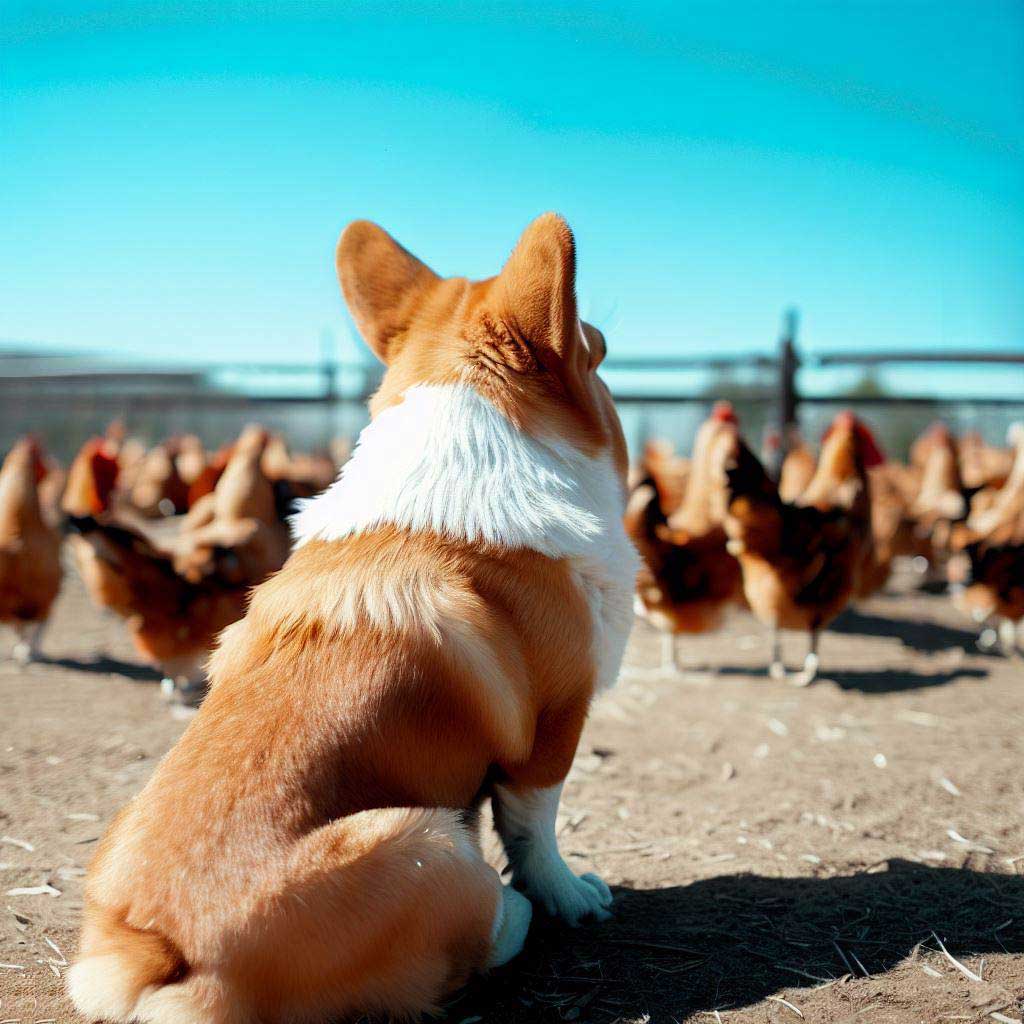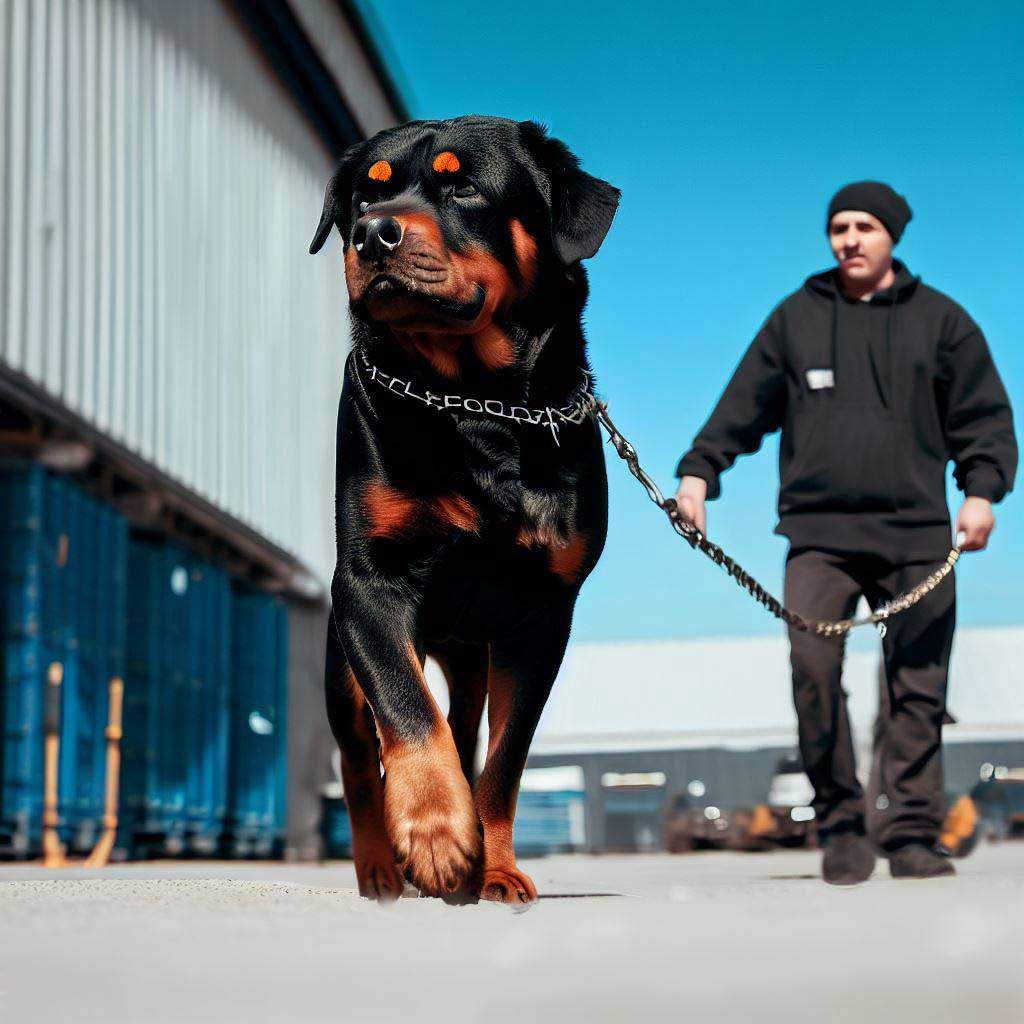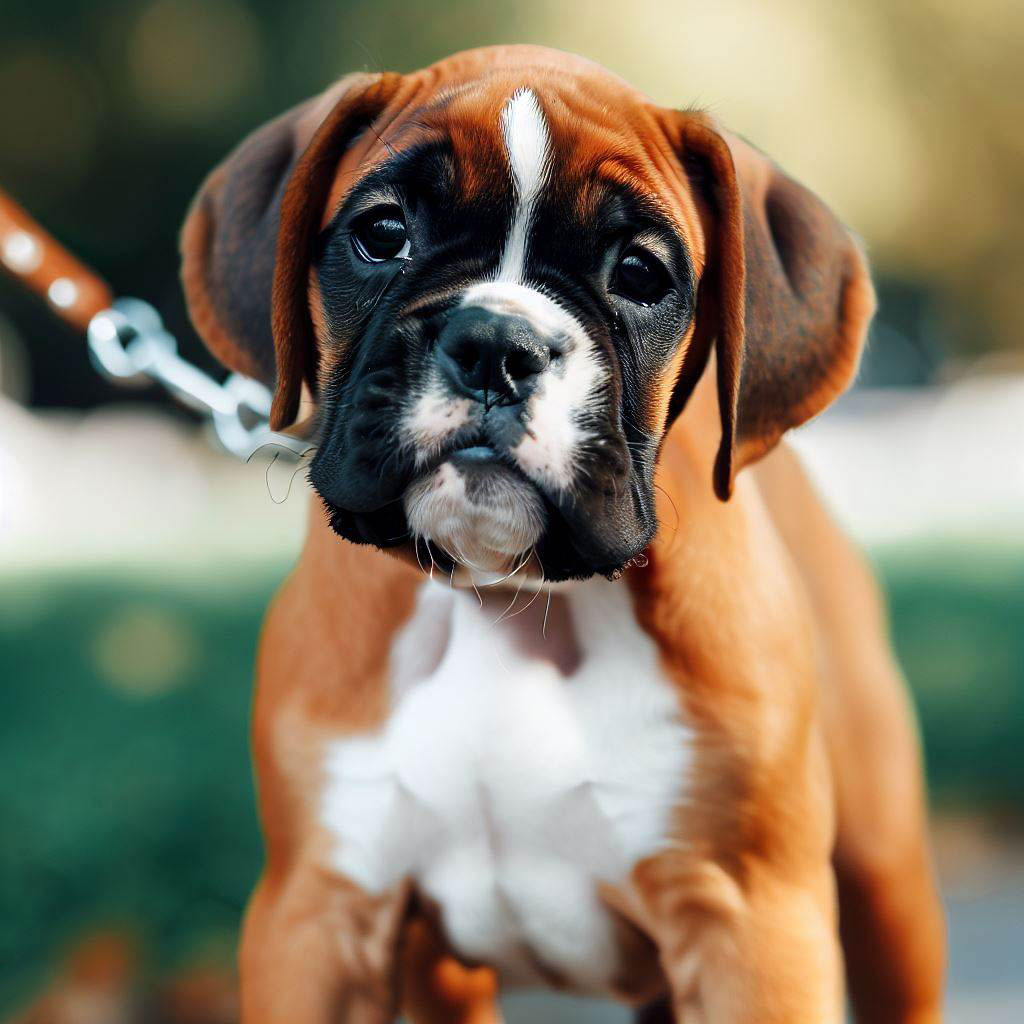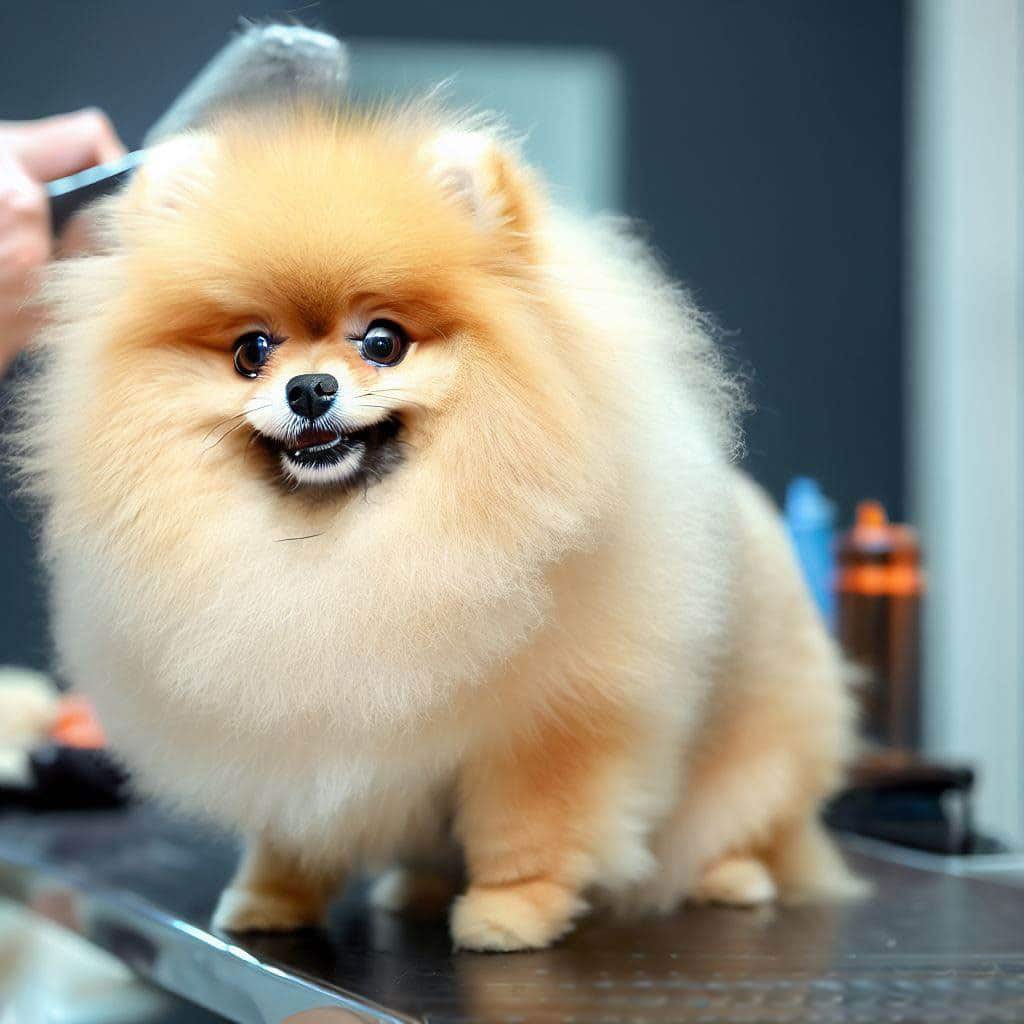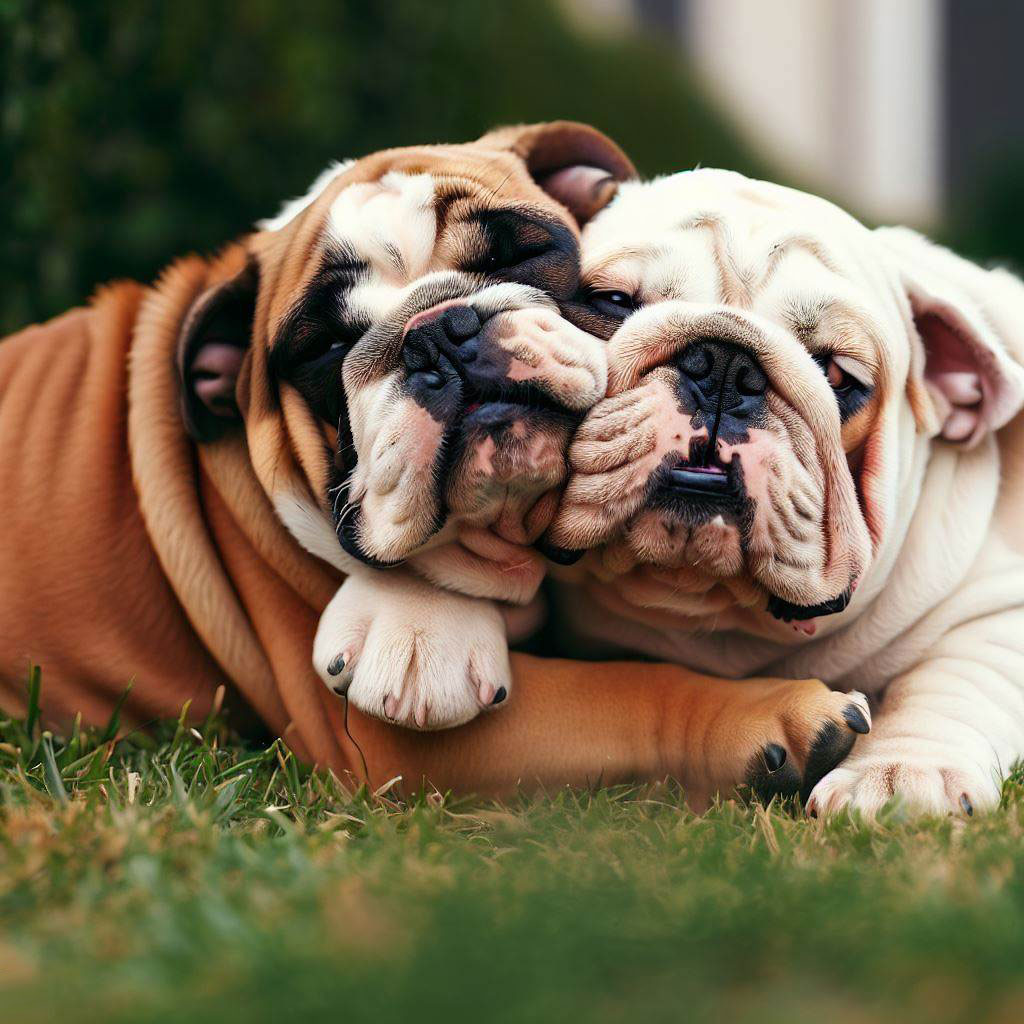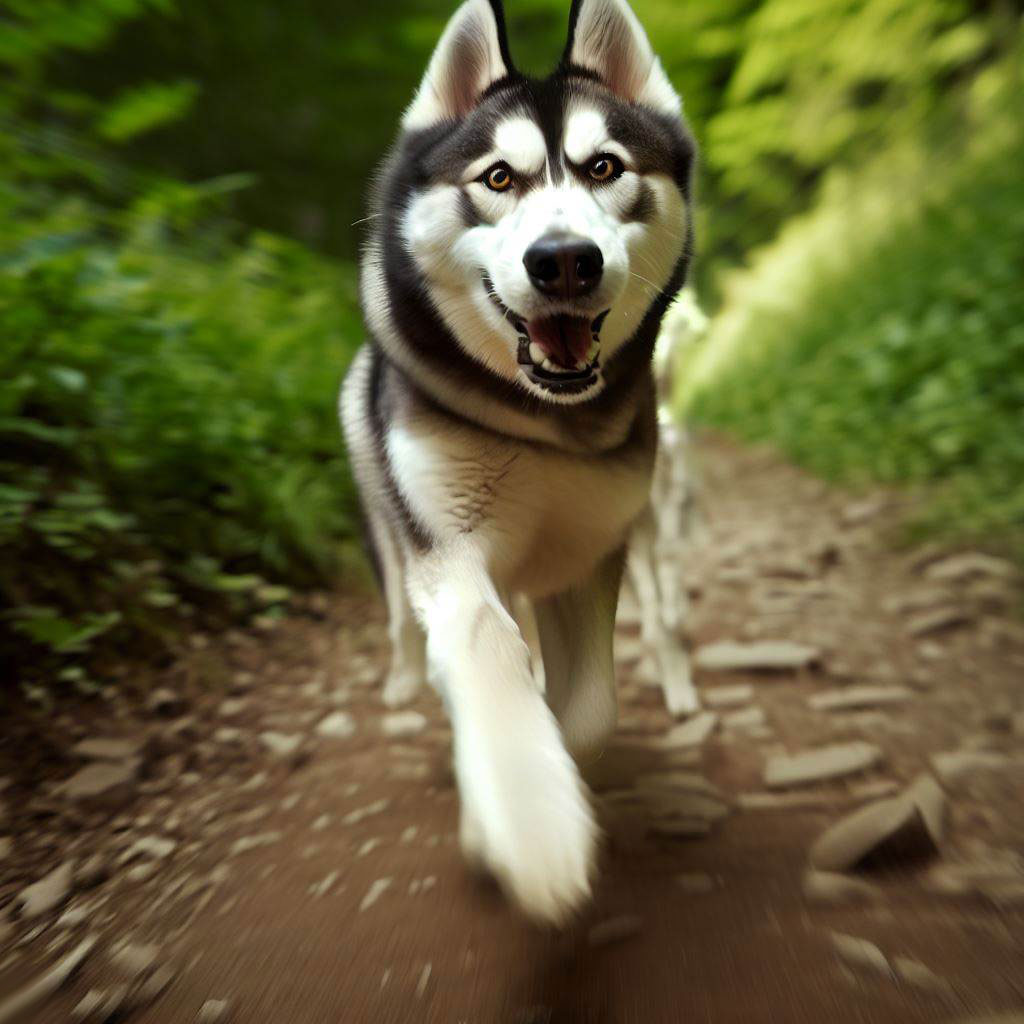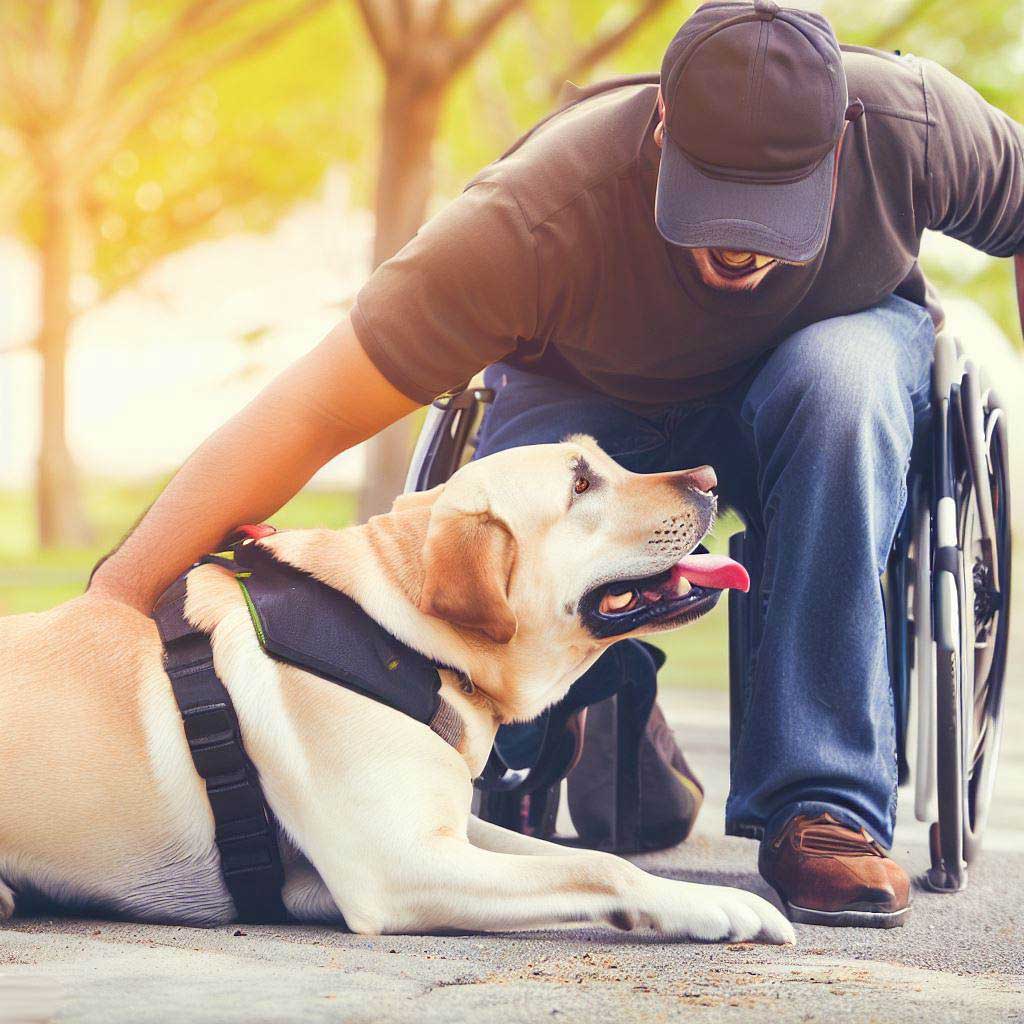Table of Contents
ToggleChoosing the Right Dog for Your Chickens
The quest for the best dogs for chickens isn’t a frivolous endeavor; it’s an integral part of sustainable, successful poultry management. Think about it: Chickens are often the victims of both airborne and land predators. A dog, strategically chosen and properly trained, can be a formidable line of defense. Moreover, the right breed does more than just guard; it can help herd your chickens, guide them towards safe foraging areas, and even form a social bond that enriches the lives of both species.
Brief Overview of Criteria for Selecting the Best Dogs for Chickens
Now, you might be wondering, what makes a breed the ‘best’ for cohabitating with chickens? Several factors come into play.
First off, consider temperament. A dog with a naturally calm demeanor is less likely to ruffle feathers—literally. Then, there’s the physical aspect. A dog too large may intimidate the flock, while one too small might lack the intimidation factor for predators. Intelligence? Absolutely critical.
You want a breed capable of absorbing training techniques that bridge the canine-avian gap. And don’t forget energy levels; a dog that’s too energetic might tire your chickens, but one that’s too lethargic could neglect its duties.
So, while the term “best dogs for chickens” may evoke a range of opinions, the selection process is anything but subjective. It’s grounded in real, measurable criteria, which we will delve into, each justified by years of expertise and thousands of hours in the field.
Stay tuned as we unpack the intricacies and offer you a meticulously curated list of breeds that excel in the chicken-guarding department. Trust me, this is a decision you want to get right, and this guide will show you precisely how to do that.
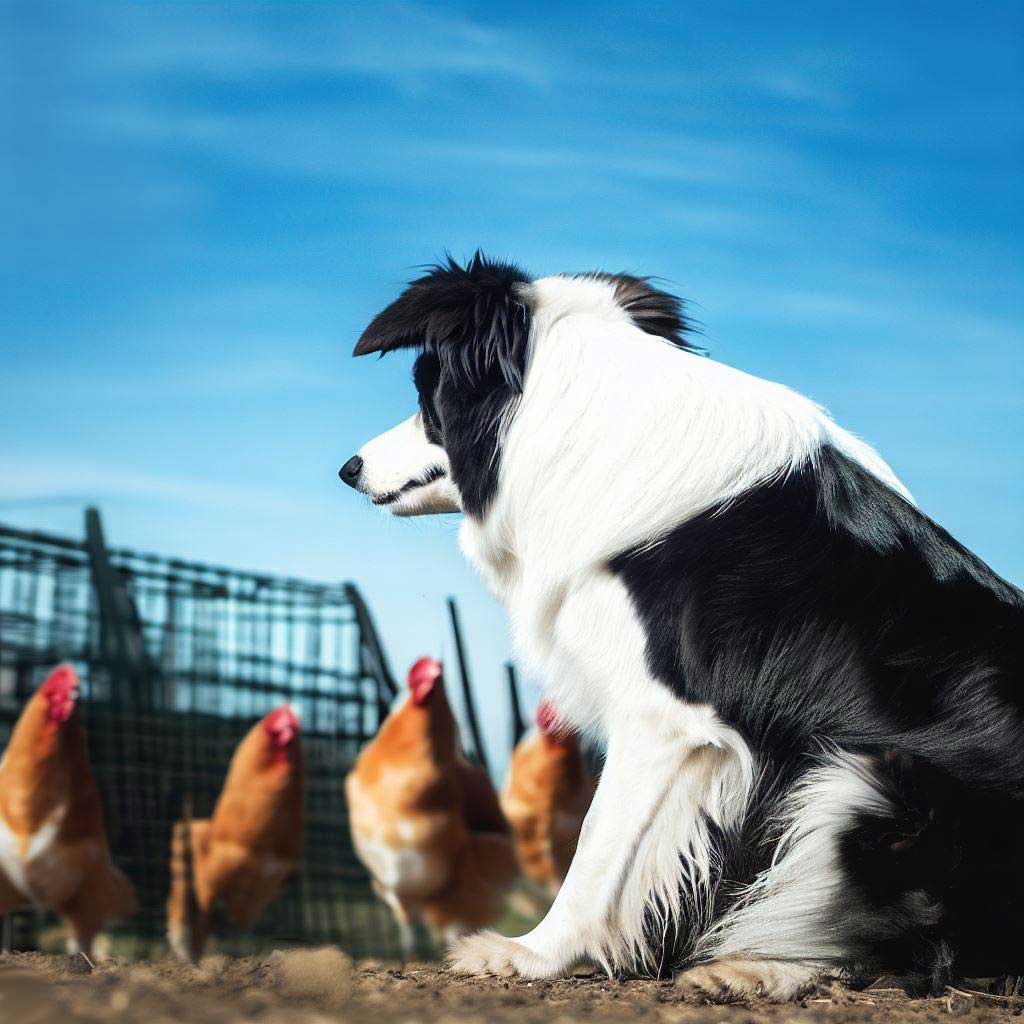
Why Do You Need a Dog for Your Chickens?
Security Against Predators
Let’s cut to the chase: Chickens are predator magnets. From cunning foxes to stealthy raccoons and swooping hawks, threats can come from the land or the sky.
While you might assume that a fence is enough, predators are often smarter and more resourceful than we give them credit for. Enter the vigilant canine.
Whether you’re dealing with a small backyard coop or a full-scale poultry farm, a properly trained dog acts as an imposing sentinel. The best dogs for chickens are, quite frankly, those that not only deter predators but also alert you of possible intruders. With the dog’s keen senses, it’s like having an organic security system, 24/7.
Herding and Managing the Flock
You’ve invested in chicken coops, quality feed, and even the occasional poultry spa day. But what about optimizing flock movement?
Believe it or not, herding dogs can provide a level of organization to your chickens that’s unrivaled by human efforts alone. The canine can usher the flock to greener pastures—literally!—and help guide them back to safety come dusk.
Unlike human intervention, a dog can navigate the flock with a sense of urgency and precision that stems from its natural instincts. Herding breeds excel in this role, often taking the lead without much need for commands.
It’s a win-win: your chickens get quality foraging areas, and the dog gets a job that fulfills its instinctual desires.
Companionship and Social Benefits for Chickens
Ah, companionship—the under-discussed gem in this poultry-canine relationship. Chickens are social animals, and loneliness can be just as deadly as any predator.
A bored or isolated chicken is a stressed chicken, and stress is an open invitation to disease. On the flip side, dogs too relish companionship.
Pair the right breed with your chickens, and you’ll create a symbiotic relationship that enhances the emotional well-being of both parties. Surprising? Perhaps, but it’s a natural extension of the multi-faceted roles that the best dogs for chickens can play in a poultry setting.
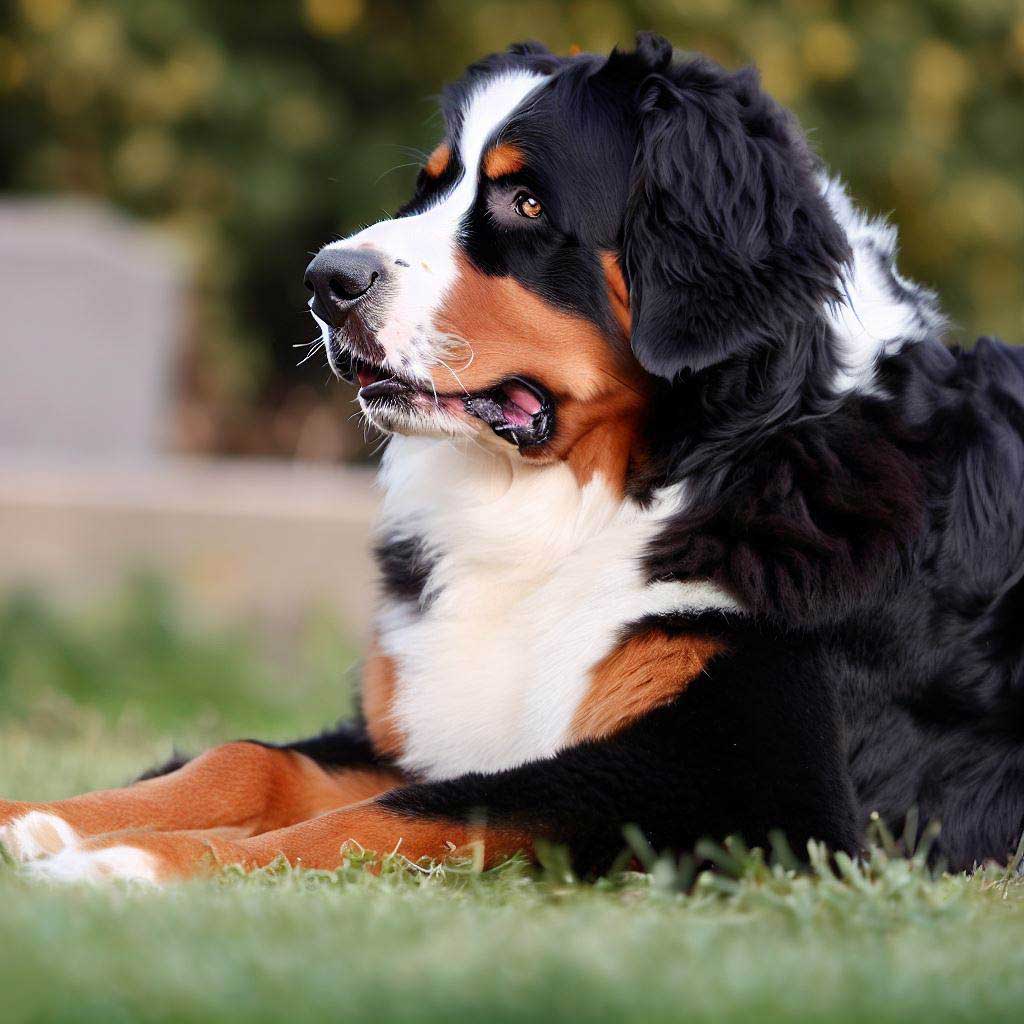
What to Look For in a Dog Breed
Temperament and Behavior
When it comes to poultry protection, you might be tempted to pick a dog that’s ferocious and intimidating. Hold that thought. It’s not just about scaring off predators; it’s also about maintaining peace in your coop. A dog with a volatile temper? A ticking time bomb, waiting to stress your chickens. Look for breeds known for their stable temperament. Calm, yet alert. Gentle, yet protective. These characteristics make for the best dogs for chickens. Such breeds not only deter predators but also provide a peaceful coexistence within your little farmyard ecosystem.
Size and Physical Characteristics
Size matters, but bigger isn’t always better. A giant breed might intimidate the chickens; conversely, a too-small dog might become prey rather than protector. What you want is a well-balanced, agile creature. Think about fur too. Short-coated breeds are easier to keep parasite-free, a crucial factor when they’ll be mingling with chickens. Ever considered the dog’s nose? A snout too short, think brachycephalic breeds, limits their ability to effectively sniff out threats. Go for the Goldilocks zone in size and features.
Training and Intelligence
You can’t train a rock, right? A dog’s intelligence and capacity for training are critical. Breeds that learn quickly and can understand complex commands tend to excel in a farmyard setting. Moreover, intelligent dogs can read situations better, discerning between friend and foe. It’s not just about innate intelligence; consider the dog’s willingness to be trained. A stubborn breed can make the training process taxing for both you and your chickens.
Energy Levels
An over-energetic dog might incessantly chase your chickens, leaving them stressed and unproductive. On the other hand, a lethargic dog might as well be a sitting duck for predators. Opt for breeds with moderate energy levels—active enough to protect and herd but calm enough to coexist without causing a fiasco. In essence, energy levels should match the needs of your chicken-rearing lifestyle.
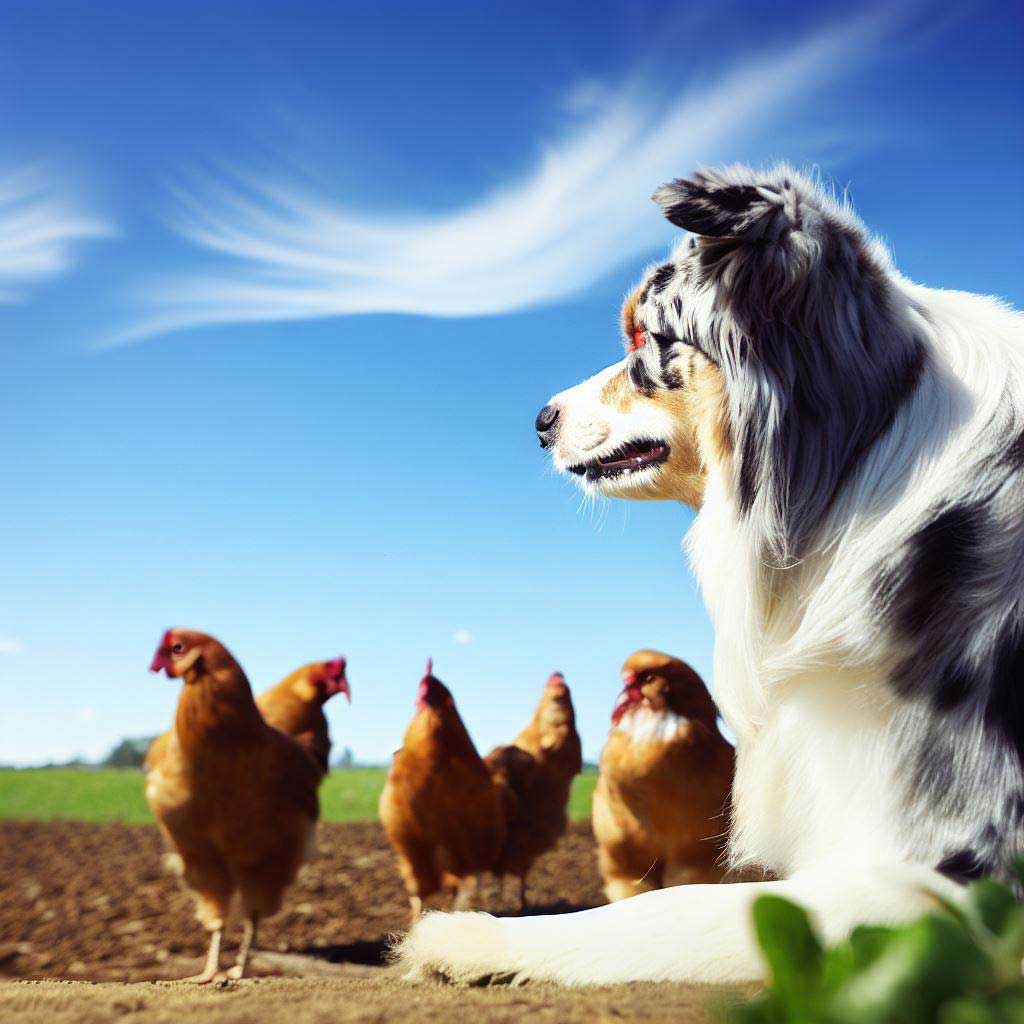
Top 7 Herding Breeds for Chickens
Border Collie
Meet the crème de la crème of herding breeds—the Border Collie. Renowned for their intelligence and agility, these dogs are master tacticians. They employ the “eye”—a focused, intense gaze—to control livestock, and yes, that includes chickens. However, their intense focus can sometimes make them a bit obsessive. Proper training is key to channel this energy positively.
Australian Shepherd
Don’t let the name fool you. The Australian Shepherd was developed in the United States. These dogs are charismatic, lively, and fantastic problem solvers. Their coat is a splash of art, often a mix of merle, blue, and black. While they share the intelligence common to herding breeds, their exuberance requires consistent mental and physical engagement.
Shetland Sheepdog
They resemble mini Rough Collies and pack a work ethic that’s nothing short of impressive. Shetland Sheepdogs are keenly alert and make excellent watchdogs in addition to their herding capabilities. They’re a smaller breed, so if space is a concern, they may be a perfect fit. But keep in mind, their luxurious fur calls for regular grooming.
Kelpie
The Australian Kelpie is lean, keen, and built for hard work. These dogs are practically all muscle and brains, with an instinct for herding so ingrained, it’s like second nature to them. Kelpies excel in agility and obedience, and their ability to think on their feet makes them one of the best dogs for chickens.
Belgian Malinois
Commonly mistaken for a German Shepherd, the Belgian Malinois is a powerhouse. They’re agile, trainable, and have a natural protective instinct. These traits make them effective herders, but their guarding skills are also top-notch. However, they require a firm hand in training, as they can be overly protective if not properly guided.
Rough Collie
Think Lassie. Rough Collies are sensitive and intelligent, excellent at reading human cues and translating them into action. Their long, dense coat makes them strikingly beautiful but also demands a robust grooming routine. While they’re good at herding, they shine in their empathetic nature, which makes them comforting companions for your chickens.
Corgi
Yes, those short legs can herd! Pembroke and Cardigan Corgis are feisty, energetic, and exceptionally alert. They were originally bred for herding cattle, but their size and temperament make them highly adaptable for poultry herding as well. But watch out—their penchant for nipping at heels applies to chickens too.
Benefits and Challenges of Herding Breeds
Herding breeds bring an eclectic mix of benefits to the table. Their intelligence makes them fast learners, and their agility keeps predators at bay. Moreover, their instinctual need to herd makes the work less of a task and more of an inbuilt trait.
However, it’s not all sunshine and roses. These breeds require active mental and physical stimulation. Their intelligence can be a double-edged sword; if not given proper outlets, they can become destructive or neurotic. They often require more training and socialization than other breeds, given their high energy and specialized skills.
Remember, while these breeds have been cultivated for herding, individual personalities will differ. Always spend time with a potential new dog to see if they fit your specific needs. Will any of these breeds solve your chicken-herding woes? Only time, and perhaps a bit of trial and error, will tell.
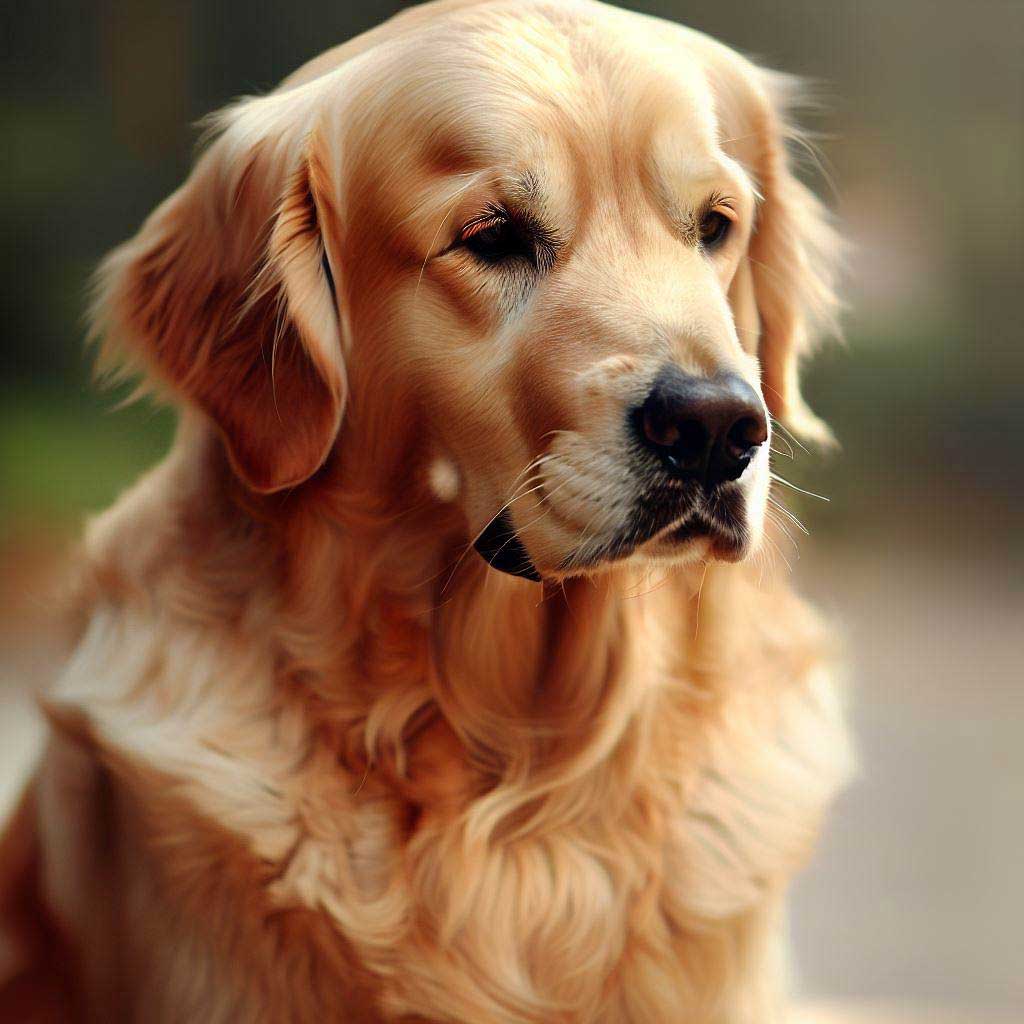
Top 7 Guarding Breeds for Chickens
Great Pyrenees
Let’s kick it off with the Great Pyrenees. This dog is a guardian in the truest sense of the word. Originating from the Pyrenees Mountains, they have a long history of protecting livestock. Naturally alert and vigilant, they patrol the perimeter with a watchful eye. Majestic in their white coats, they don’t just blend into the snowy backdrop; they also blend seamlessly into a life of guardianship. However, they do shed—a lot.
Maremma Sheepdog
Hailing from Italy, the Maremma Sheepdog has protected flocks for centuries. These guardians have a work ethic that’s simply unparalleled. In fact, they’re so focused on their job that they often prefer the company of their livestock to human interaction. Yet, their aloof nature should not be mistaken for a lack of loyalty. Their devotion to protecting your chickens is steadfast.
Anatolian Shepherd
Fast and furious, the Anatolian Shepherd hails from Turkey and stands as one of the most impressive guardians. Swift and agile, this breed takes action the moment it senses a threat. Intriguingly, their short coat makes them less prone to pests, a significant advantage when guarding free-range chickens. Remember, these are large dogs requiring ample space, but they are among the best dogs for chickens, excelling in both herding and guarding.
Kuvasz
A Hungarian breed with a royal lineage, the Kuvasz is both a protector and a regal presence on any property. Powerful yet gentle, they’re known for their loyalty. They’re guardians by instinct but companions by choice. However, they are not the easiest to train, displaying a certain level of independence that requires an experienced handler.
Tibetan Mastiff
This is no ordinary dog; this is a legend. The Tibetan Mastiff’s roots trace back to the nomadic cultures of Tibet, China, Nepal, and Central Asia. With a mane like a lion and a bark that reverberates through the mountains, this breed demands respect. Their sheer size can deter predators, but their fur requires constant maintenance. If left untamed, it can become a haven for parasites.
Akbash Dog
Akbash Dogs are Turkey’s other gift to the world of poultry protection. Unlike the Anatolian Shepherd, the Akbash tends to be quieter and more reserved. Don’t let that calm demeanor fool you; when the situation calls for it, the Akbash leaps into action with unparalleled valor. It’s a lesser-known breed but offers the best of both worlds—strength and serenity.
Bernese Mountain Dog
Last but not least, the Bernese Mountain Dog brings Swiss precision to the art of guarding. Balanced in temperament, they offer a nice break from the intense focus of other guarding breeds. They’re particularly good with children, making them ideal for family farms. However, their heavy coats require frequent grooming, and they have a shorter lifespan compared to other breeds.
Benefits and Challenges of Guarding Breeds
Guarding breeds offer an unmatched sense of security. With their sheer size, acute senses, and natural instincts, they deter most predators before an attack can occur. Additionally, many of these breeds exhibit a deep-rooted loyalty not just to their human families but also to the animals they guard.
The challenges? Their size often translates to higher maintenance costs. Food, medical care, and space requirements can stretch your resources. Training these independent thinkers requires time, skill, and patience. Plus, their protective instincts can sometimes manifest as aggression if not properly managed. Each breed comes with its unique set of demands, so choose wisely to find the guardian that complements your flock and lifestyle.
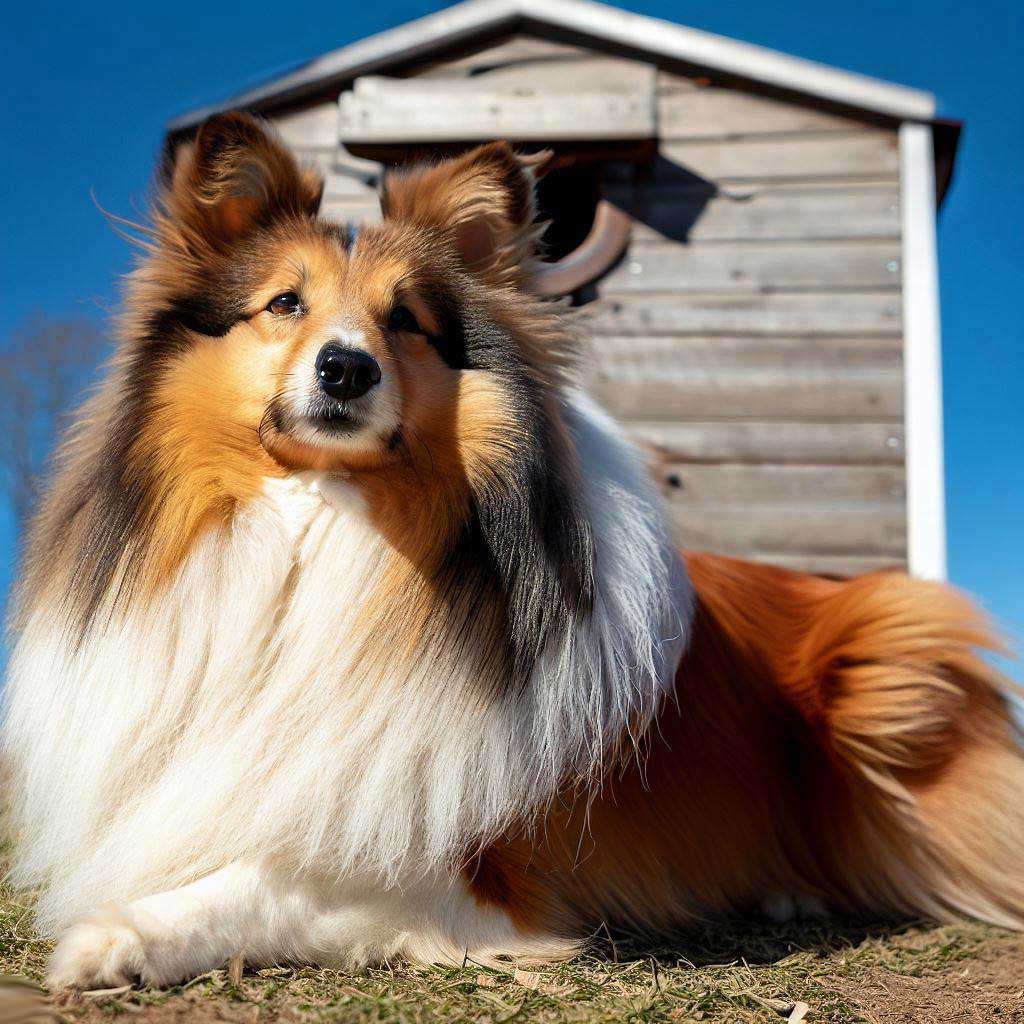
Top 7 Companion Breeds for Chickens
Golden Retriever
Ever consider a Golden Retriever as a feathered-friend companion? Surprise, these happy-go-lucky canines not only adore humans, they often get along splendidly with chickens too. Boasting a gentle temperament, Goldens rarely see a chicken as prey. In fact, you might catch your Golden playing ‘follow the leader’ with your flock. Remember, their thick coat requires frequent grooming, especially when they’re out in the fields.
Labrador Retriever
Ah, the Labrador, America’s favorite dog! Not only are they family-friendly, but they also adapt superbly to livestock settings. Labs show remarkable restraint when socialized early with your chickens. Still, bear in mind that this breed is energetic; they need plenty of exercise. Otherwise, a bored Lab might start to find those chickens a little too interesting.
Beagle
Sniff, sniff. Beagles have a nose for adventure. Traditionally hunting dogs, they might raise a few eyebrows when listed among the best dogs for chickens. Here’s the twist: With proper training, Beagles become unlikely yet extraordinary companions for your poultry. Intriguingly, their keen sense of smell can alert you to health issues within your flock long before you notice them. However, they do have a tendency to howl, which might disturb the peace now and then.
Boxer
Muscular yet affectionate, the Boxer brings a lively spirit to any farm. Don’t let their intimidating physique fool you; their reputation for loyalty extends to smaller animals like chickens. Interestingly, their agile bodies are more than capable of chasing off any unwelcome intruders without harming your flock. Note that Boxers are prone to certain health conditions, so regular veterinary check-ups are a must.
Standard Poodle
No, we’re not kidding. The Standard Poodle, often seen as a prim-and-proper show dog, can indeed be a magnificent companion for your chickens. They’re highly intelligent, easy to train, and surprisingly agile. On top of that, their hypoallergenic coat reduces the chances of transmitting pests to your birds. The catch? They require mental stimulation, or they may resort to mischief.
Bichon Frise
Tiny but mighty, the Bichon Frise adds a touch of whimsy to your poultry operation. Their petite size makes them less threatening to chickens, while their cheerful demeanor lightens up the coop. They’re small enough to fit into tight spaces, an advantage in some settings. Beware, their fluffy coat requires substantial grooming, and their small stature isn’t ideal for predator deterrence.
American Eskimo Dog
Forget the name; this breed hails from Germany, not Alaska. With striking white fur and an alert disposition, the American Eskimo Dog is not just beautiful but also a vigilant guardian. When trained correctly, they can balance their protective instincts with a nurturing attitude toward your chickens.
Benefits and Challenges of Companion Breeds
Companion breeds offer a unique blend of sociability, alertness, and often unexpected skills that can enrich the life of your poultry flock. They can provide not just companionship but also a subtle form of protection, in some cases detecting health issues or threats sooner than you might. Plus, they adapt well to family life, often proving to be great with kids.
Now, let’s tackle the challenges. Many of these breeds require frequent exercise and mental stimulation; failing to provide these can lead to behavioral issues. Grooming needs vary but can be intensive. And let’s not forget, while they may not be primarily guarding breeds, they’re not always content to let a raccoon or fox saunter into their territory without kicking up a fuss—so training is crucial. Picking the right companion breed depends on your specific needs, the size of your coop, and the threats native to your region.
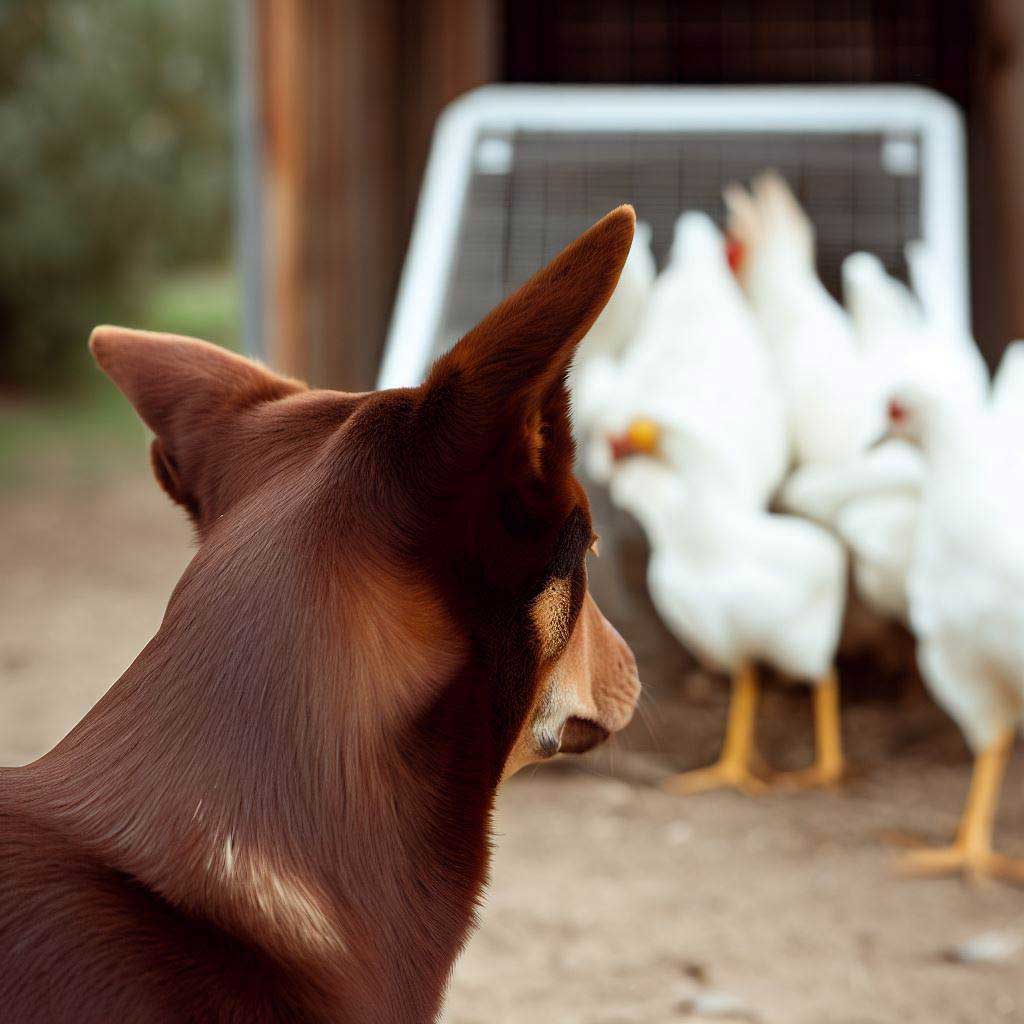
How to Train Your Dog to Be Chicken-Friendly
Introduction to Positive Reinforcement Training
You’re eager to make your dog one of the best dogs for chickens, aren’t you? Here’s where the magic begins: Positive Reinforcement Training. Treats, praise, and playtime become your new currency. Why? Because dogs do what works! Reward the good, ignore the bad. Let’s break this down: Your Fido sits calmly while watching the chickens? Treat. He barks or lunges? No treat. You’re building a mental bridge for your canine friend that says, “Chickens equal treats.”
Setting Boundaries
Setting boundaries isn’t merely a suggestion; it’s a must. How to start? Easy. Use a leash or a long line. The goal? You want to restrict your dog’s movements, giving him only as much freedom as he can handle responsibly. If he attempts to chase, you swiftly reel him in—no drama, no shouting. Just a calm redirection. Over time, incrementally increase the distance between your dog and the coop, always rewarding calm behavior. Ah, the beauty of controlled environments!
Socialization Techniques
This is where the action happens. Socialization is the key, and the earlier, the better. Curiosity will kick in initially; it’s your job to channel it correctly. Let’s say your dog looks at the chicken, then back at you. A-ha, that’s your cue to reward him! Every time his attention diverts back to you instead of focusing on the chickens, you’ve hit the jackpot. This is building the association you want. Be consistent, be patient, and watch as your dog becomes a poultry-friendly prodigy.
Getting Help: Benefits of Online Training
Ah, but what if you hit a snag? Sometimes, despite your best efforts, professional guidance becomes inevitable. Good news! Online training courses have made leaps and bounds in terms of quality and effectiveness.
In our previous review article, “Best Online Dog Training Courses: Any Dog Will Love,” we delved deep into 15 courses, ultimately recommending the top 3. The advantages? Convenience, affordability, and variety of teaching styles. You can often find modules specifically aimed at training dogs for livestock interaction, elevating them to the ranks of the best dogs for chickens.
Imagine: No commute, no fixed schedules, and no one-size-fits-all approach.
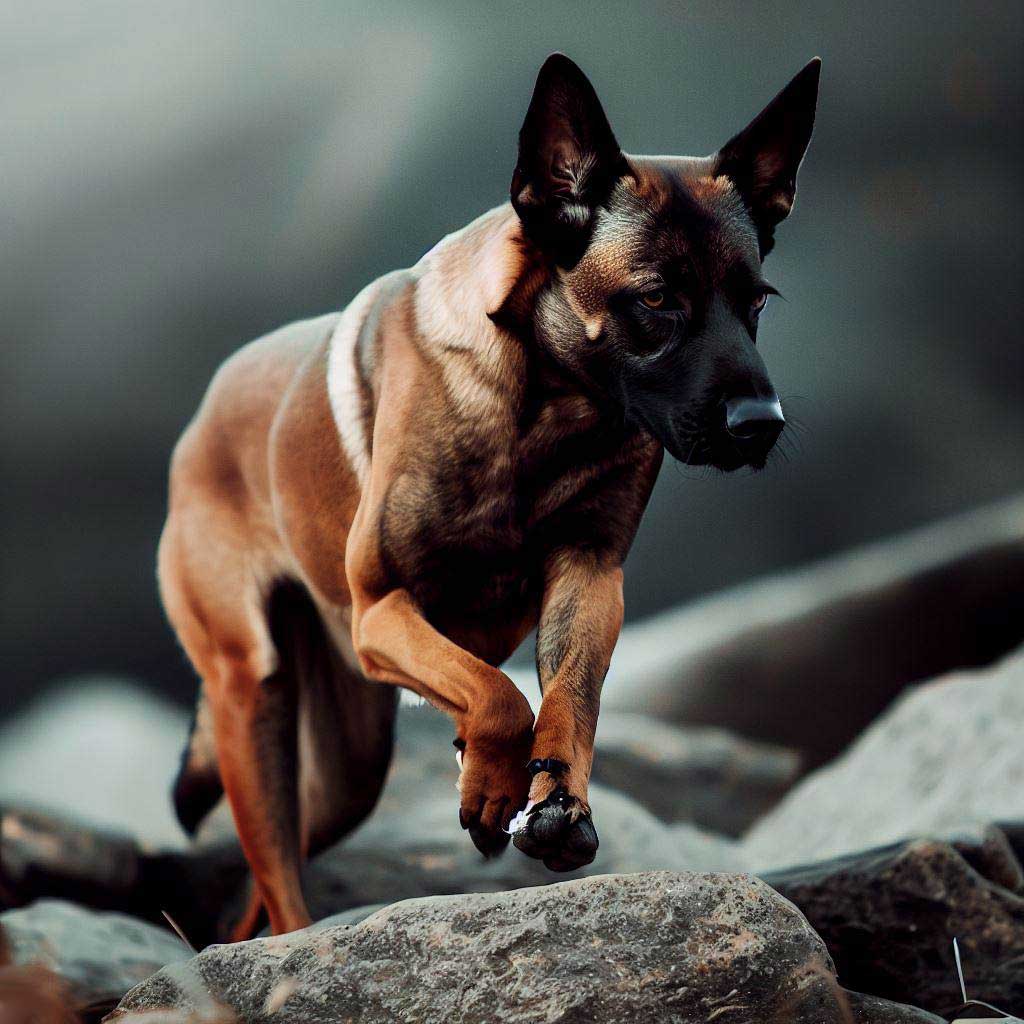
Case Studies: Success Stories
Real-life Examples of Dogs and Chickens Living Harmoniously
You might think it’s a fairy tale—dogs and chickens living together in harmony. Yet, it’s not just a pipe dream; it’s possible and often a heartwarming reality. Take Sally, a Golden Retriever, who found her home on a small farm. Initially, her innate curiosity led her too close to the coop, raising eyebrows. But guess what? Through structured socialization and meticulous positive reinforcement, Sally learned. Now, she stands guard, joining the ranks of best dogs for chickens.
Or how about Leo, the Border Collie? Agility and focus are in his DNA. At first glance, you’d think he might herd those chickens into a panicked frenzy. Instead, using his herding instincts, Leo gently corralled the flock back to their coop one evening when a gate was mistakenly left open.
Interviews with Owners
Ever wondered what it’s like from the human perspective? We went straight to the source—interviewing owners who’ve struck gold in the dog-chicken relationship lottery.
Meet Tim, Sally’s owner, a practical man who initially had his reservations. “When I first got Sally, I wasn’t optimistic. My neighbors had a dog that terrified their chickens,” Tim confesses. But the change? “Positive reinforcement was the game-changer. I rewarded her each time she ignored the birds. Took a month, but we got there. A win-win, truly.”
On the flip side, Emily, who owns Leo, knew she was tapping into the Border Collie’s natural tendencies. “Leo was bred to herd; it’s instinctual. My gamble was channeling that instinct toward a protective role.” And did it work? Emily laughs, “Like a charm! Leo views the chickens as his little, feathery friends who need guidance rather than chase objects.”
So, you see, it’s not a shot in the dark. It’s about reading the room—or the breed, in this case. Understanding your dog’s natural traits can elevate them to become the best dogs for chickens, turning potential calamity into a serene, pastoral tableau.
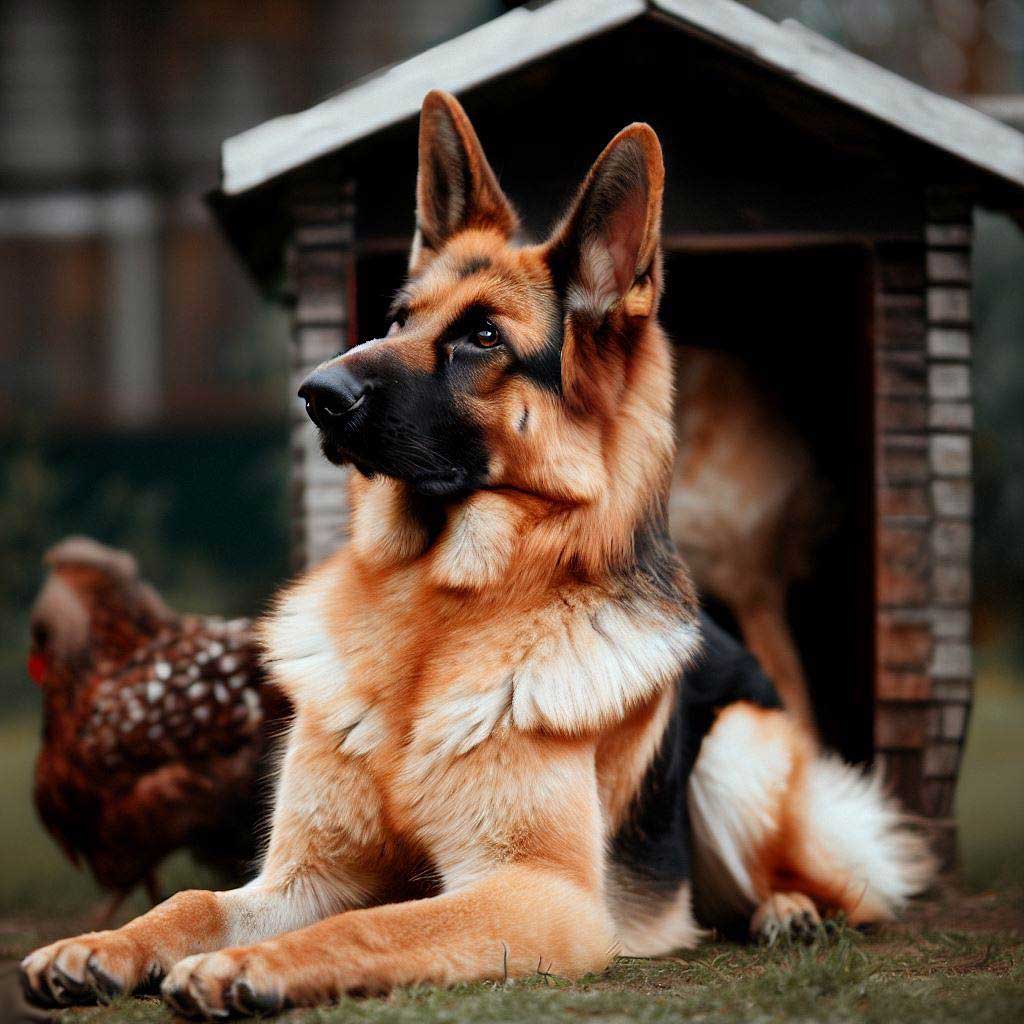
Conclusion: Best Dogs For Chickens: 21 Top Breeds
Summary of Key Points
Alright, let’s get down to the nuts and bolts. We’ve ventured through the world of herding, guarding, and companion breeds—each with their unique merits and challenges. Dive into positive reinforcement training, and remember, setting boundaries isn’t optional; it’s essential. Not to overlook the human angle; the real-life stories of Sally and Leo illustrated how even within the breeds considered to be the best dogs for chickens, individual behavior matters.
Personal Recommendations Based on Expertise
Listen, if you’re a newbie in this realm, a Golden Retriever or Labrador Retriever stands as a safe bet. Easier to train and typically docile, these breeds offer a comfortable entry point for the uninitiated.
However, if you’re not a first-timer and willing to invest time in training, consider an Australian Shepherd or a Belgian Malinois. Their high intelligence and work ethic require a more involved owner but pay dividends in versatility and effectiveness. A word to the wise—online resources can be a godsend for niche issues. Our article, “Best Online Dog Training Courses: Any Dog Will Love,” reviewed 15 courses and picked the best 3. Utilize them.
Moreover, don’t underestimate the value of your gut instincts. After thousands of training sessions, I’ve found that a keen sense of observation can go a long way. Watch your dog interact with the chickens. If you see potential, chances are it’s there. Remember, when it comes to choosing the best dogs for chickens, breed traits provide a guideline but not an immutable law.
Train, observe, adjust. The cycle is as old as time but remains the gold standard in any dog training scenario.
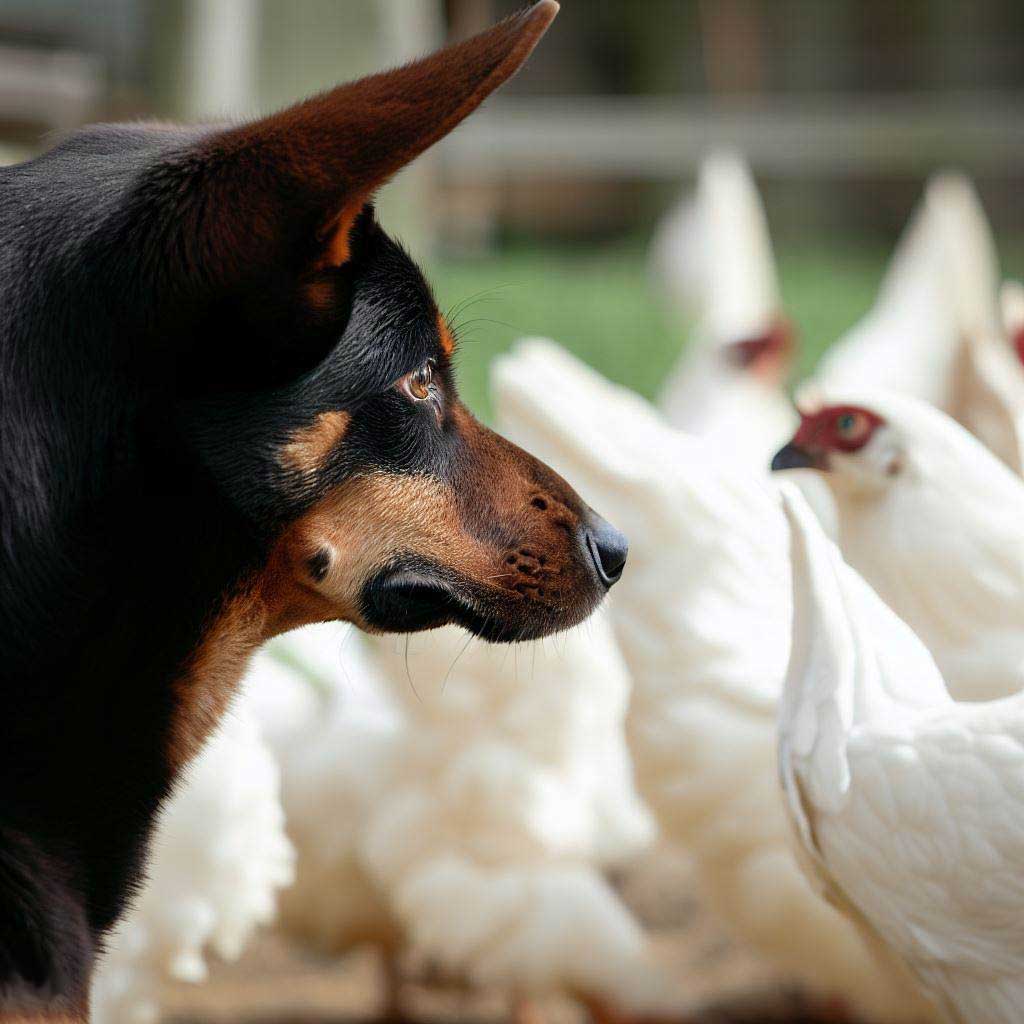
FAQ: Best Dogs For Chickens
What is the best breed of dog to protect chickens?
Tough question, but for sheer effectiveness, I’d give the gold medal to the Great Pyrenees. These dogs are natural guardians, and they’ve been doing it for centuries. However, the best dogs for chickens often depend on your unique circumstances.
What dogs are okay with chickens?
Many, actually! Breeds like Golden Retrievers, Labrador Retrievers, and even Beagles make fantastic chicken-friendly companions. They’re trainable and generally docile, a real win-win.
What is the best guardian animal for chickens?
While dogs are a strong contender, don’t discount other animals like geese or llamas. That’s right, llamas. These creatures often scare off potential chicken predators like raccoons and foxes.
What is the white dog that protects chickens?
Ah, you’re talking about the Maremma Sheepdog. Native to Italy, this breed is another top-notch guardian, right up there with the Great Pyrenees.
What breeds of chickens avoid predators?
Interestingly enough, chicken breeds like the Leghorn and Ancona are experts in predator evasion. They’re agile and alert—features that give them a survival edge.
Can I train my dog to protect my chickens?
Absolutely, training is key, folks. Methods like positive reinforcement and setting boundaries can make your dog one of the best guardians for chickens. For in-depth guidance, check out our top picks in the article, “Best Online Dog Training Courses: Any Dog Will Love.”
What predator kills the most chickens?
Predators vary by region, but in North America, the prime suspects usually are raccoons, foxes, and hawks. Your guard dog’s mission is to keep these villains at bay.
What keeps coyotes away from chickens?
High fences and guardian animals are effective deterrents. However, certain dog breeds like the Anatolian Shepherd specialize in keeping coyotes away.
What animal protects chickens from coyotes?
As just mentioned, breeds like the Anatolian Shepherd and Kuvasz are particularly skilled at this. Llamas are also a popular choice, surprisingly.
What is the best animal to protect free range chickens?
For free-range chickens, mobility is key. The Belgian Malinois, fast and alert, excels in this kind of environment.
What do chickens love the most?
Chickens love treats like mealworms, fruits, and vegetables. However, their secret love? Sand baths. They go bonkers for a good dust bath.
Will a rooster protect hens from a fox?
In theory, yes. Roosters are more alert and can serve as a warning system. But remember, a rooster is no match for a determined fox. That’s where a trusty dog steps in.
Get ready to become the go-to person for all things canine with these game-changing reads!
Why Does My Dog Eat Poop: Surprising Truth Unveiled: Ever caught your dog indulging in this unsavory habit? Prepare for a jaw-dropping revelation as we unravel the science behind this perplexing behavior!
Heat for Dog House: Choosing the Right Heating System: Winter is coming, and Fido needs to stay warm! Learn how to make your dog’s haven a cozy paradise with our expert guide on the best heating systems.
How To Train A Puppy to Pee On A Pad: New pup in the house? Save your floors and sanity with our in-depth training manual to make potty time a breeze!
How to Train a Puppy Not to Jump On You: Love cuddles but hate the jumping? Get a step-by-step approach from pros to keep your puppy’s paws on the ground, not your clothes!
